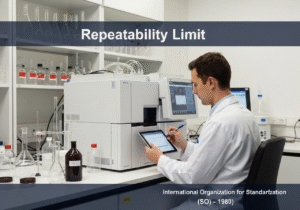A type of software testing performed to identify bugs before releasing the product to real users or the public.
- Methodologies: Lean Sigma, Manufacturing
Alpha Testing

Alpha Testing
- Product Development, Quality Assurance, Quality Control, Quality Management, Software Testing, Usability, User Testing, Validation
Objective:
How it’s used:
- Alpha testing is conducted by internal employees of the organization, such as QA engineers, before the software is released for beta testing.
Pros
- Allows for early detection of bugs, provides feedback on the usability and functionality of the product, and helps to improve the quality of the software before it is released to the public.
Cons
- May not be representative of real-world usage, can be time-consuming, and may not uncover all of the bugs in the software.
Categories:
- Product Design, Project Management, Quality
Best for:
- Identifying and fixing bugs in a software product before it is released to the public.
Alpha testing involves rigorous assessment of a product’s functionality and user experience within the confines of the organization prior to its external release, typically occurring during the later stages of the developmental phase. This methodology is widely implemented across various sectors, including software development, telecommunications, and game design, where rigorous testing is necessary due to high user expectations and rapid technological advancements. Participants in alpha testing generally include quality assurance personnel, developers, and in some instances, product managers who are well-acquainted with the project’s objectives and technical specifications. Conducting alpha tests typically allows for a controlled environment where feedback can be gathered swiftly and addressed promptly, leading to iterations that enhance overall usability and performance. For instance, game development companies often engage teams in alpha testing phases to gauge gameplay mechanics and ensure that bugs are rectified before public scrutiny during beta releases. This process supports a culture of continual improvement, as it encourages transparency and collaboration among internal teams, leading to stronger final products that better meet user needs and expectations. Additionally, alpha testing can significantly reduce costs associated with post-launch fixes by identifying major flaws and areas for enhancement early on, enabling organizations to allocate resources more efficiently and deliver reliable software solutions to their consumers.
Key steps of this methodology
- Develop test cases based on product requirements and specifications.
- Conduct functional testing to verify that all features operate as intended.
- Perform usability testing to assess the user interface and experience.
- Run integration testing to ensure compatibility between different components.
- Execute performance testing to measure response time and stability under load.
- Identify and document bugs and issues encountered during testing.
- Prioritize bugs based on severity and impact on user experience.
- Fix identified bugs and re-test the affected areas for validation.
- Conduct regression testing to verify that recent changes haven't impacted existing functionality.
- Gather feedback from testers on overall experience and functionality.
- Finalize testing and prepare the product for beta testing release.
Pro Tips
- Incorporate exploratory testing sessions to complement scripted test cases, allowing testers to uncover unforeseen issues through unconventional usage.
- Utilize pair programming or collaborative testing with team members from different skill sets to generate diverse perspectives and identify potential blind spots.
- Conduct a post-mortem analysis after each alpha testing cycle, documenting lessons learned and changes in testing strategy for future iterations.
To read and compare several methodologies, we recommend the
> Extensive Methodologies Repository <
together with the 400+ other methodologies.
Your comments on this methodology or additional info are welcome on the comment section below ↓ , so as any engineering-related ideas or links.
Historical Context
1914
1943
1970
1980
1980
1911
1928
1950
1980
1980
1990
(if date is unknown or not relevant, e.g. "fluid mechanics", a rounded estimation of its notable emergence is provided)











Related Posts
Monte Carlo Simulation
Model-Based Testing
Model Checking
Mixed Methods Research
Mistake Proofing (Poka-Yoke)
Mission Profile Testing